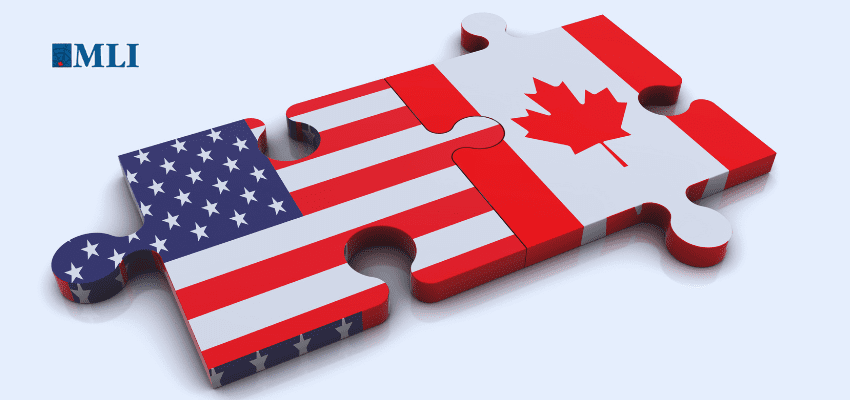This article was published by the Macdonald-Laurier Institute’s Washington office, the Center for North American Prosperity and Security (CNAPS.org). It originally appeared in the Washington Examiner.
By Tim Sargent, March 5, 2025
Why is the United States hitting its biggest customer? President Donald Trump is going ahead with 25% tariffs on all Canadian imports except energy, which will be hit with a 10% tariff.
The apparent rationale is imports of fentanyl and illegal immigration. However, this is clearly a pretext as very little of the fentanyl consumed in the U.S. comes from Canada, comparatively few illegal immigrants come across the northern border, and Canada has already fallen over itself to comply with the Trump administration’s desires. Since December 2024, Canada has committed almost an additional $1 billion to border security and appointed a “fentanyl czar.” If there is something else the Canadian government should be doing, the Trump administration has not said what it is.
Indeed, Canada would have just as good an argument to slap a tariff on U.S. exports to Canada: Millions of dollars of illegal guns pour across the Canadian border from the U.S., and Canada has had large numbers of immigrants coming up through the U.S. to claim refugee status at the Canadian border.
The concerns about the border are raised simply to allow Trump to use the International Emergency Economic Powers Act to levy tariffs without congressional approval. The real motivation appears to be his desire to follow his mercantilist instincts and boost U.S. manufacturing by pricing foreign-manufactured products out of the domestic market.
Even if you think tariffs are good economic policy, and few economists do, it doesn’t make much sense to go after Canada.
Firstly, most of what Canada sells to the U.S. are resources and intermediate goods that U.S. companies then turn into finished goods. Tariffs mean that these finished goods will now be more expensive relative to imports from other countries. So, a car from Korea or Japan with almost no U.S. content will become relatively cheaper compared to a vehicle produced in the U.S. using Canadian or Mexican parts.
Secondly, Canada is the U.S.’s biggest export customer. As of the most recent year of complete data, 2023, we Canadians buy more than $440 billion of goods and services every year, more than Mexico ($370 billion), China ($195 billion), and the United Kingdom ($165 billion), the next three largest buyers.
As a result, the U.S. runs an account surplus with Canada in products such as motor vehicles. The only reason why the U.S. runs a current account deficit is because Canada exports crude oil to U.S. refiners, allowing some U.S. refined crude to be exported at a higher price. Moreover, the current account deficit with Canada is only $40 billion of the overall deficit of $785 billion, giving Canada the 10th-largest deficit, compared to other trading partners such as China at $252 billion, Mexico at $162 billion, and Vietnam at $103 billion.
A weaker Canadian economy also means Canada can’t buy as much from the U.S. And Canada has plenty of options to retaliate against U.S. tariffs, which will make things even harder for U.S. exporters.
The U.S. has legitimate concerns about countries such as China that have taken advantage of easy access to the American market to build up their manufacturing capacity through subsidies and much lower wages, reducing manufacturing employment in the U.S.
However, Canada is not the cause of the loss of manufacturing jobs in the U.S. Canada is a relatively high-wage country, and manufacturing employment has been falling there as well. The bottom line is that hitting Canada like this will make it harder for U.S. manufacturers to turn a profit as it loses a key customer and faces higher costs.
The president prides himself on being a good businessman, but it is never good business to beat up on a key supplier that is also your biggest customer.
Tim Sargent was Canada’s deputy minister for trade during the NAFTA (USMCA) renegotiations. He is the director of domestic policy at the Macdonald-Laurier Institute and a contributor to the Center for North American Prosperity and Security.






